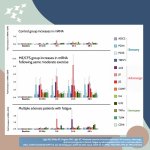elvira
Senior Member
- Messages
- 146
Hello!
With studies for Long Covid and ME/CFS with the drug BC007 starting this summer, I was wondering what people’s thoughts are of the outcome. How much will it help for Long Covid respectively ME/CFS? Is it something to hope for? Please share whatever you’re thinking
Cheers! (Tagging some people that might know something - @Martin aka paused||M.E. @Pyrrhus @Hip )
With studies for Long Covid and ME/CFS with the drug BC007 starting this summer, I was wondering what people’s thoughts are of the outcome. How much will it help for Long Covid respectively ME/CFS? Is it something to hope for? Please share whatever you’re thinking
Cheers! (Tagging some people that might know something - @Martin aka paused||M.E. @Pyrrhus @Hip )

